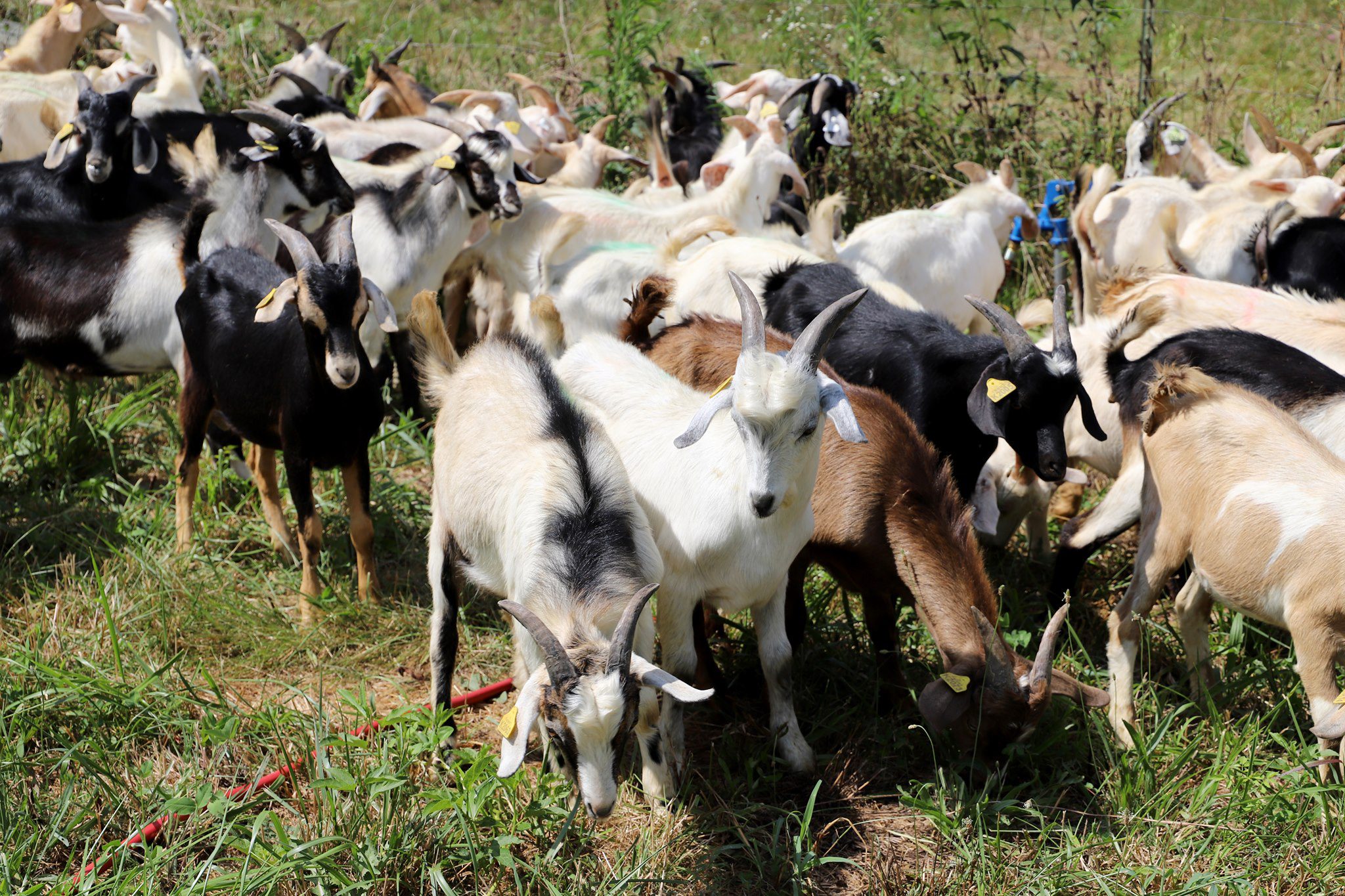Urban Agriculture

Reproductive options among small ruminants may vary from natural breeding to artificial insemination or may involve a combination of both. No matter what reproductive method a farmer chooses to use, there are management practices that should be followed to ensure the production of a herd of prolific animals. The primary influence on successful reproduction is to start the process with a set of healthy animals. Moreover, designing a successful reproduction management plan will also require the use of a healthy reproductive herd. Proper nutrition is yet another major factor. There are some additional general practices a farmer can implement to ensure the likelihood of successful reproduction among the animals.
Nutritional requirements are specific to animal species and classification. To sufficiently feed them, group the animals according to nutritional needs. In barn feeding situations, such as during the winter months, animals should be provided with high-quality hay and supplemented with properly balanced grain or byproduct feeds. Inadequate provision of nutrition can diminish growth rate, milk production, reproduction, disease resistance, and overall animal performance.
Factors to Consider
Providing proper nutrition year-round is a major factor affecting the health and fertility of a herd of animals. Allowing goats to browse and graze, giving them access to hay, and feeding them supplemental concentrate feedstuffs will keep them in good breeding conditions. Other options such as “flushing” breeding animals will increase their abilities to reproduce at certain times.
Flushing consists of a farmer providing additional high-energy feed for a month before the breeding period. This increases egg production among the does and sperm count among the bucks. While such a practice is very effective, it is important to avoid overfeeding these animals. Obese animals are less likely to conceive, and obese does may be prone to birthing difficulties.
Proper Health Care
Proper health care is another factor in successful reproduction. This may involve deworming, vaccinations, and preventative healthcare practices. If your animals need deworming, you should deworm them 30 days prior to breeding. This will prevent them from being stressed or “pulled down” because of a heavy worm burden and will increase the likelihood of conception. Vaccinations are available to prevent such illnesses as overeating disorders, tetanus, or pneumonia and can be administered at the same time. As always, consult a veterinarian before medicating any animals.
Mineral Availability
Adequate availability of macro and micro minerals is important for a successful reproduction program among breeding stock. Trace minerals such as selenium and magnesium increase the potency of bucks and the fertility of does. A good mineral supplement specifically made for goats will provide the trace minerals needed as well as adequate amounts of copper to enhance the immune system of a herd. The provision of mineral supplements is a good option to meet the nutrient requirements of animals.
Foot Care
During breeding time, does, and bucks spend extra time on their feet, so proper foot care is crucial. Healthy, properly trimmed feet will ensure they can stand for breeding. Gather up all breeding stock a month or two before breeding season to check their feet for disease or overgrown hooves. Foot rot, weak pasterns, and overgrown hooves can affect an animal’s ability to walk, run, and stand. Examine each animal’s feet, making sure their hooves are well trimmed, their weight is evenly distributed, and they are able to stand level. Look for small rocks, thorns, or other debris that might be lodged between their toes. Also, check for hoof rot and treat as necessary.
Fresh Water
Fresh water is also important, especially during the breeding season. Water troughs should be free of algae, feces, and rotting vegetation to ensure clear water for breeding stock and to decrease the chance of illness. Water containers should be checked daily and cleaned weekly to ensure such conditions. Clean clear water increases the likelihood of a healthy herd.
Summary
A well-informed producer can increase his or her success in meat goat and sheep production. Issues such as diet, nutrition, health care, foot care, and water quality are crucial in raising healthy, productive animals. By following these best management practices, producers should be able to minimize the occurrence of nonproductive animals and increase farm revenue.
 Revised by Valens Niyigena, Ph.D., Extension Animal Scientist; and Bobwealth Omontese, DVM, Ph.D., Assistant Professor, Alabama A&M University. Originally written by Maria Leite-Browning, DVM, former Extension Animal Scientist, Alabama A&M University.
Revised by Valens Niyigena, Ph.D., Extension Animal Scientist; and Bobwealth Omontese, DVM, Ph.D., Assistant Professor, Alabama A&M University. Originally written by Maria Leite-Browning, DVM, former Extension Animal Scientist, Alabama A&M University.
Revised August 2022, Increasing Successful Reproduction Among Goats, UNP-0083

